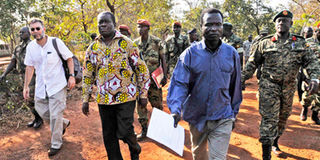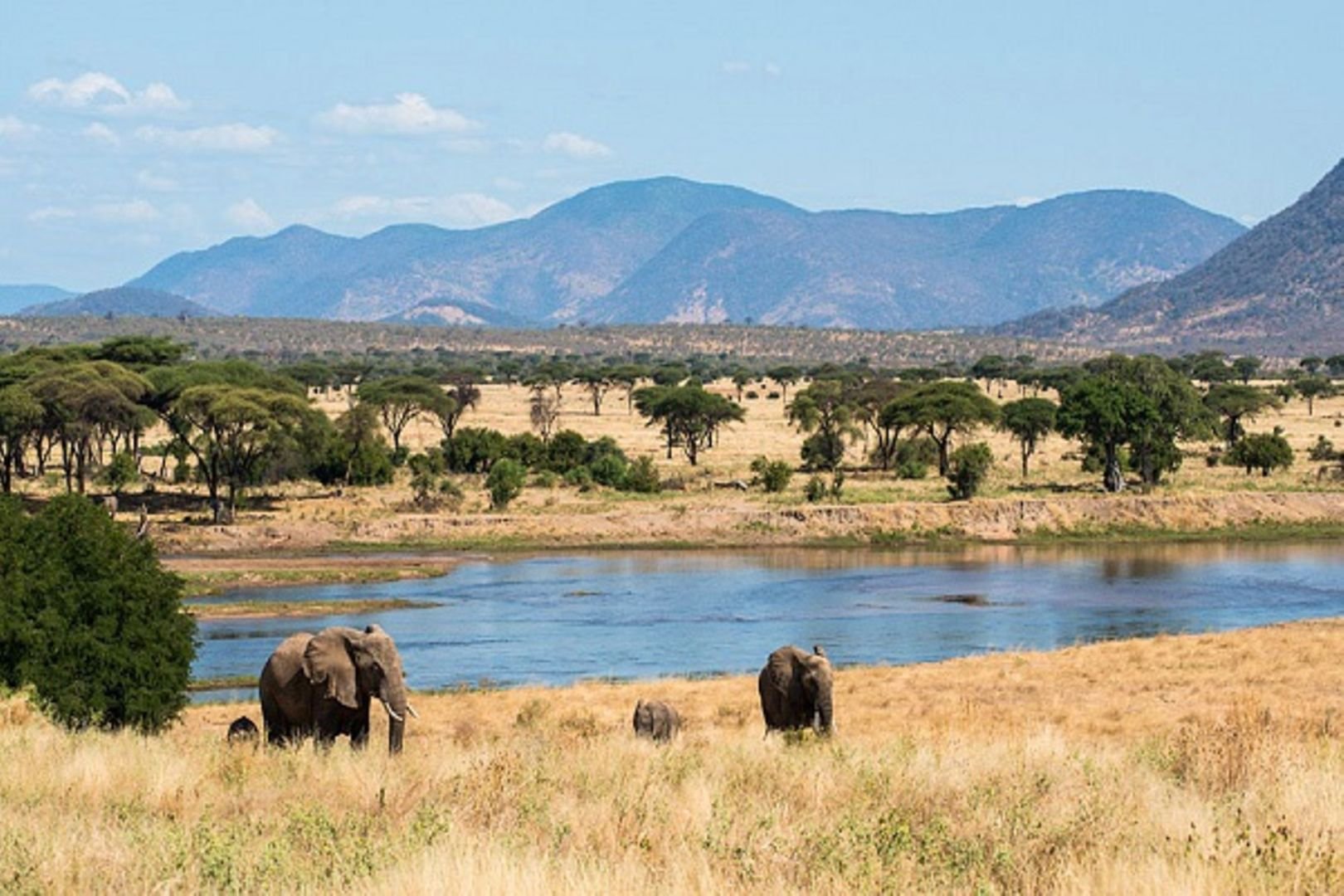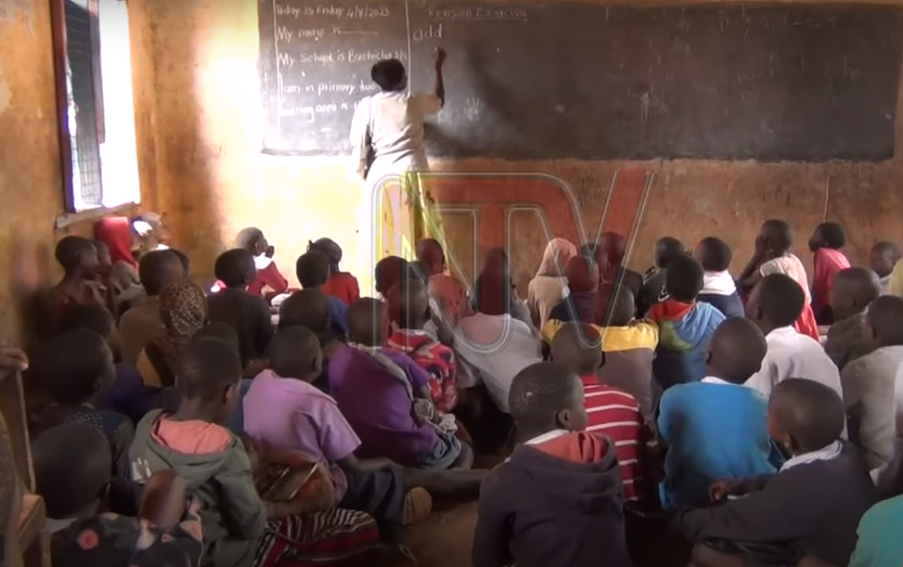Mixed reactions as Ongwen goes to ICC

Kampala
As a victim, as well as a suspected perpetrator of the most serious war crimes against humanity, Maj Gen Dominic Ongwen, a former commander of the Lord’s Resistance Army rebels, arrived at The Hague at the weekend to face trial.
However, the leaders in northern Uganda, where most of the said war crimes were committed, have reacted angrily, consistently accusing government of ‘duplicity’ for going against the Juba peace agreement, which offered the trial of LRA rebels in Ugandan courts.
Others have warned that Ongwen’s trial in the Netherlands, approximately 6336.6km away from the alleged “crime scene”, would unreasonably prolong the insurgency given the fact that rebels would fear to surrender to the authorities.
Ongwen faces seven charges at The Hague and the circumstance of his participation in crimes committed by the LRA could form part of his defence in the coming days. But in the event of his conviction, Amnesty International chief says his abduction at the age of 10 and conscription into the LRA could also be taken into account in sentencing.
“The government sent Ongwen to ICC without the blessing of the people of northern Uganda and their leaders. ICC is a stumbling block for the rebels who wanted to give up arms. We wanted Ongwen for cleansing and then face trial in Uganda” Gulu Woman MP Betty Aol Ocan, said.
A ritual cleansing ceremony in Acholi community is used to exorcise peoplesuch as Ongwen of evil spirits and bad omen.
Another legislator, Mr Gilbert Olanya (Kilak County) said: “Ongwen shouldn’t have gone to ICC; he should have been tried in Uganda and given amnesty. He was abducted at 10 and taught all sorts of bad manners. It was indoctrination that made him a ruthless and heartless person. The government hurried him to ICC as if they wanted to hide something,” Ms Ocan said.
According to Ms Sarah Jackson, Amnesty International’s deputy regional director for East Africa, Uganda could later seek to challenge the ICC’s case in order to prosecute him in Uganda. However, to do so, “the government would need to demonstrate to the ICC’s judges that it is genuinely able and willing to investigate and prosecute the case.”
In a televised interview before he departed for The Hague, Ongwen pleaded his innocence over the crimes he is alleged to have committed. He said he was abducted and conscripted into the rebel ranks as a “deaf and blind” person.
While the President agreed to transfer Ongwen to ICC for trial, some leaders from Acholi, the epicentre of the 21-year rebel insurgency, were amenably pushing for the implementation of Juba Peace Agreement.
The Democratic Party president, Mr Norbert Mao, said the Juba deal provided that the LRA leaders would be tried in Ugandan courts which they say instigated the creation of the War Crime Division primarily to deal with people like Ongwen.
Mr Mao argued that in spite of Kony’s refusal to sign the final peace Agreement, the government of Uganda went ahead and committed itself to the agreement which, among others, stipulates how indicted LRA leaders would be handled. They demanded that the government explains the apparent U-turn.
Without explaining why government disregarded the Juba Peace Agreement, Deputy Attorney General Freddie Ruhindi told Daily Monitor at weekend that a decision was made to transfer Ongwen to ICC for trial and that when the situation dictates, [the government involvement in the production], a government team would either travel to The Hague or the ICC prosecutor would come to Uganda.
Govt to play part
“When he (Ongwen) is in The Hague, the country of origin (Uganda) and other partner states are supposed to cooperate in [his] prosecution. As government, we are going to get involved in the whole process and consultations have been going on. We are communicating with the ICC,” Mr Ruhindi said.
Rather than looking at ICC, an international criminal court established to help end impunity for the perpetrators of the most serious crimes, as a tool helping in closing the impunity gap for the most heinous crimes: genocide, war crimes, and crimes against humanity, some leaders in northern Uganda said Ongwen’s trial at The Hague would discourage more LRA fighters from surrendering.
Amnesty International in a statement issued at the weekend has applauded Uganda for accepting to transfer Ongwen to ICC, as “a significant development in the pursuit for justice”.
“The LRA abducted; killed and mutilated thousands in Uganda and committed atrocities, including the use of child soldiers and sexual slavery,” Ms Jackson said.
“It’s been almost a decade since arrest warrants were issued against LRA leaders. The impending transfer of Ongwen to The Hague to face charges of crimes against humanity and war crimes finally paves the way for survivors of LRA atrocities,” she said.
The government petitioned ICC in 2004, accusing the LRA, a rebel organisation led by Kony of numerous human rights.
Following the referral of the situation to the ICC by government on January 29, 2004, on May 6, 2005, ICC prosecutor applied for a warrant of arrest for Kony, Raska Lukwiya, Okot Odhiambo, Dominic Ongwen, and Vincent Otti. The Pre-Trial Chamber II would later on July 8 2005 issue the arrest warrant.
Investigations into the atrocities committed by LRA leaders in Uganda, DRC, South Sudan and CAR have been on-going. However, Otti, Odhiambo and Lukwiya are said to be dead, leaving only Kony who is facing 33 charges at The Hague and his former commander Ongwen.
Seven charges awaiting ongwen
Maj Gen Ongwen is allegedly criminally responsible for seven counts on the basis of his individual criminal responsibility (Article 25(3)(b) of the Statute) including:
•Three counts of crimes against humanity (murder - article 7(1)(a); enslavement - Article 7(1)(c); inhumane acts of inflicting serious bodily injury and suffering - Article 7(1)(k)
•Four counts of war crimes (murder - Article 8(2)(c)(i)); cruel treatment of civilians – Article 8(2)(c)(i); intentionally directing an attack against a civilian population – Article 8(2)(e)(i); pillaging - Article 8(2)(e)(v)).




